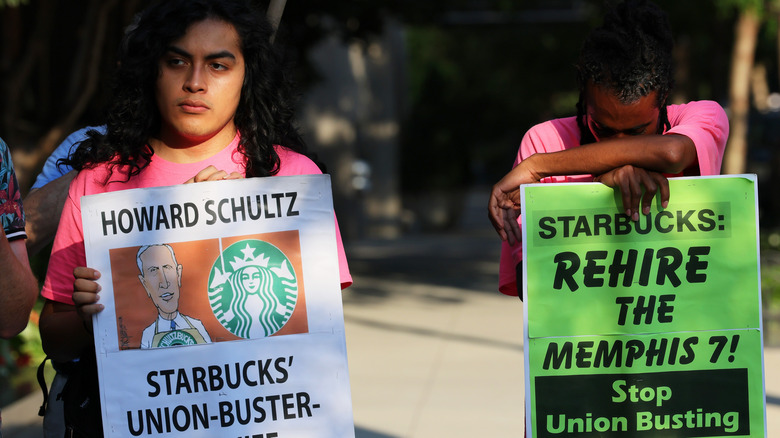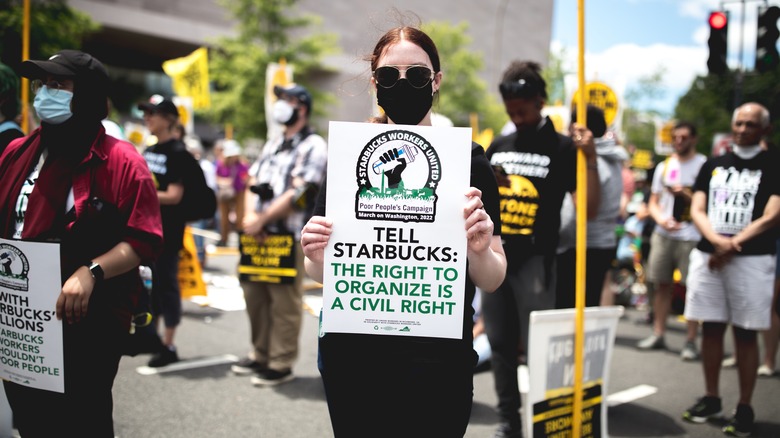Starbucks Is Finally Ready To Begin Union Contract Negotiations
It's been nearly a year since the first Starbucks location approved the formation of an employee union, per NPR. Since then, more than 200 other locations have followed suit, but no contracts have been signed between unions and the coffee retailer.
According to the United Food and Commercial Workers Union, the ultimate goal of forming a union is to establish a contract between an employer and its employees. The details of such a contract agreement detail matters like defining hourly wages, as well as detailing the responsibilities and expectations of each party. These contracts give employees leverage to make company-wide changes that would normally be very difficult for a single worker or store to accomplish.
The Guardian reports that Starbucks was recently accused of avoiding the bargaining period for these contracts. This was taken as a sign that the company's executives were unwilling to offer fair contracts. It was also noted that delaying the formation of these contracts can dissuade other locations from forming unions.
Over the last year, Starbucks interim CEO Howard Schultz has been vocal about his opposition to unions. However, per CNBC, it seems that Starbucks is now prepared to enter a bargaining period with its unionized employees. This comes after Laxman Narasimhan was named as the next CEO, and Starbucks' investors expressed concerns about its workers' rights.
Negotiations are set to begin next month
CNBC reports that Starbucks recently sent letters to all of its 238 unionized locations informing them that there will be a three-week window in October to begin negotiations. While this seems like a step in the right direction for pro-union stores, it was met with some skepticism. Workers United, which has helped Starbucks employees to form a union, expressed doubt that these negotiations will lead to meaningful progress. CNBC states that Workers United cited Starbucks' pattern of perceived union busting and its most recent appeal to the National Labor Relations Board to stop all future union elections due to alleged misconduct.
It's also difficult to estimate when a contract will be finalized. Analysis by Bloomberg Law showed that it took around 465 days for most first-time contract negotiations to be completed. The National Labor Relations Board states that during an open bargaining period, companies and their union representatives are required to continue their negotiations until a contract is agreed upon by both parties or an impasse occurs.
In the meantime, CNBC reports that union officials will be hard at work deciding on the key factors of their desired contract to prepare for the negotiation period.

